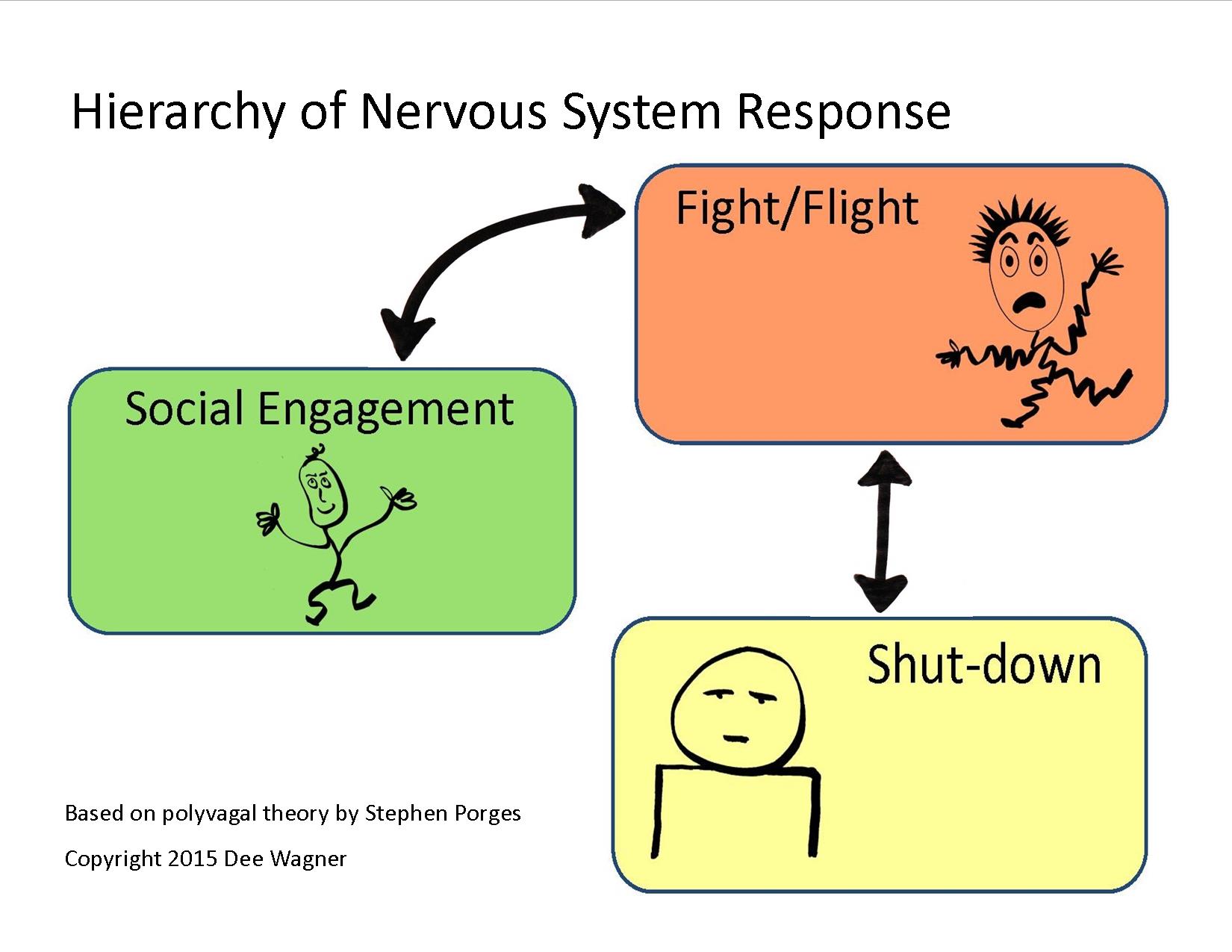
Faced with life-threatening danger, fight/flight is the defense option I want. So, I kinda live in fight/flight all the time.
And my anxiety looks productive. I have all this energy. I need to channel it somewhere. Clean the bathroom. Mow the lawn. Write all the thank-you notes.
But the more I do, the less you do? Is my anxiety attracting your depression?
Early on you loved my energy. Maybe you thought I could save us both from wooly mammoth stampedes. But now my “productivity” annoys you.
According to Stephen Porges’ Polyvagal Theory, the best-case scenario, if faced with life-threatening danger, would be the more active defense of fight/flight. We can fight or flee. There’s a surge of adrenaline, cortisol, norepinephrine—power to lift a tree off my trapped child. There is hope of survival. So no wonder my anxiety feels superior to your depression.
However, today most of our life-threatening situations have no clear fight or flight options. Life-threatening danger looms in climate change and terrorism. We drive at 70 miles an hour a few feet from other speeding vehicles. Fighting or fleeing the danger in these situations is complicated.
For me this peripheral sense of life-threatening danger creates constant hyper-alert stimulation that I manage with much activity. You seem unable to channel your fight/flight into activities. In fact, the more I channel my fight/flight into type-A hamster-wheel activity, the more you seem to move into foggy immobility. So, is my anxiety attracting your depression?
Polyvagal theory says that when fight or flight is impossible, the body shuts down. When we feel trapped, we move into freeze or faint…or computer surfing. Shut-down exists to make death less painful. It is the final defense, occurring when there is no hope for living.
Wait. Might your depression attract my anxiety? As I feel you slipping into heavy immobility, might that freak me out? Well, yes!
And then, as I get more and more stressed, does my initially attractive anxiety more and more overwhelm you?
If my anxiety is attracting and exacerbating your depression and your depression is attracting and exacerbating my anxiety, what can we do? Is break-up inevitable?
Let’s be honest: my hyper-functioning is not ideal functioning. I get a lot done but I’d much rather whistle while I work. Whistling is polyvagal theory’s third option, a playful way to exist in the world called the social engagement system.
Granted it is healthier to channel my anxious energy into productive activities rather than pulling my hair out. But it’s not the playful way—it’s not the social engagement system way.
And I must admit: when faced with your depression, to parade my activities as super-useful helps no one. Doing activities in a playful manner is far superior to the super hero I assume when anxiety is driving my actions.
There is hope. We are two separate people, not one body with one nervous system between us. Even if my anxiety attracts your depression, your shut-down does not have to then heighten my anxiety. I can get myself to yoga class. I can go to my meditation room.
If my anxiety is attracting your depression, I will give you quiet space to deal with your defense response, my love, while I deal with mine.
Relephant Favorite:
3 Ways to Let the Real You Shine Through.
~


 Share on bsky
Share on bsky




Read 5 comments and reply